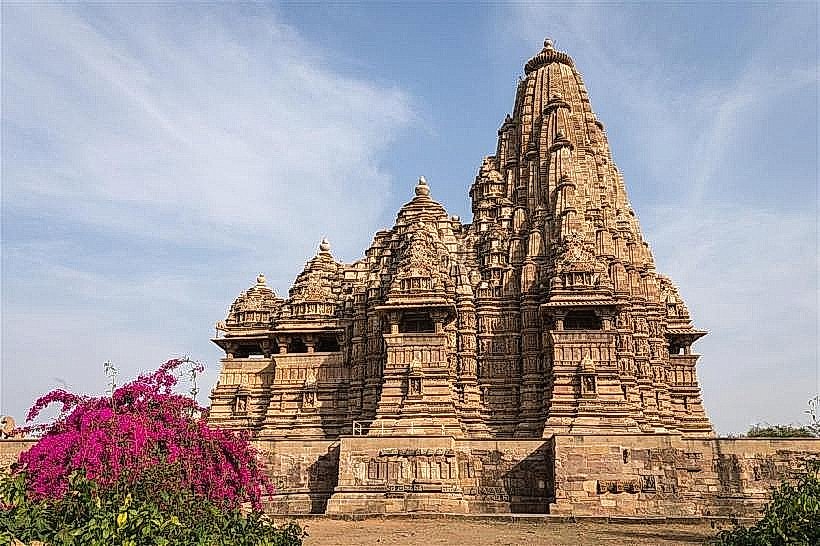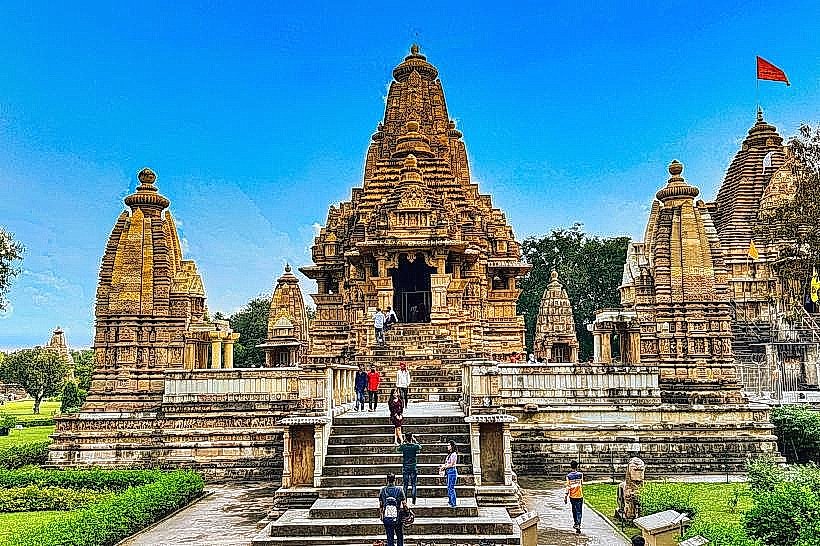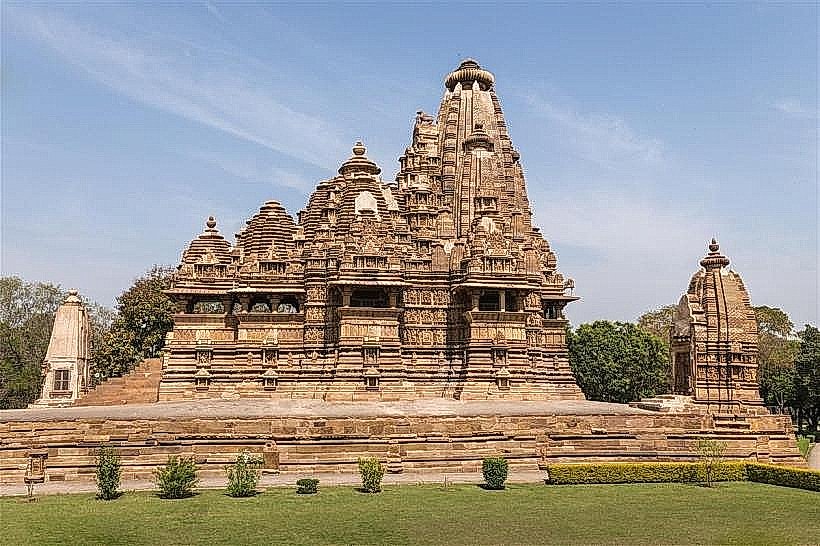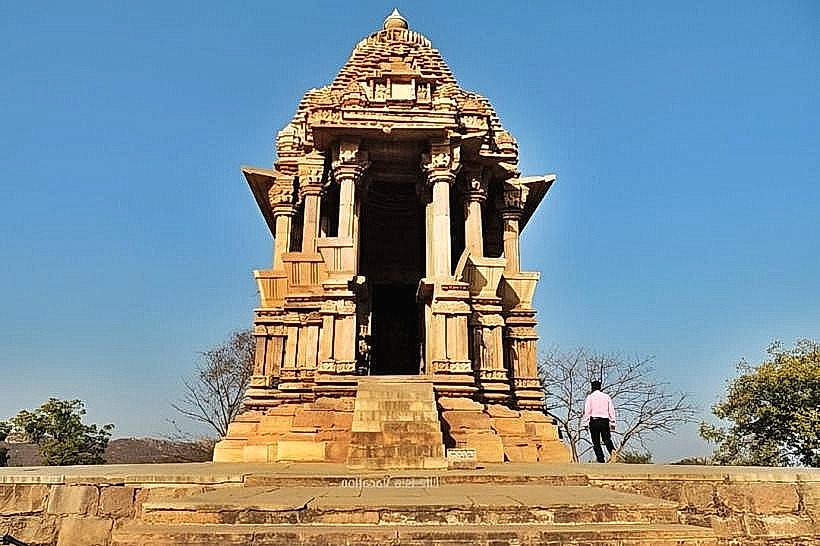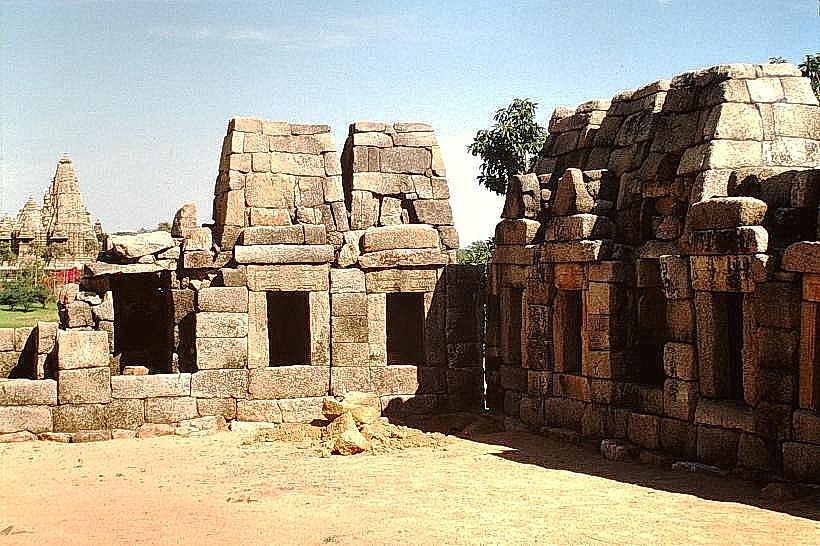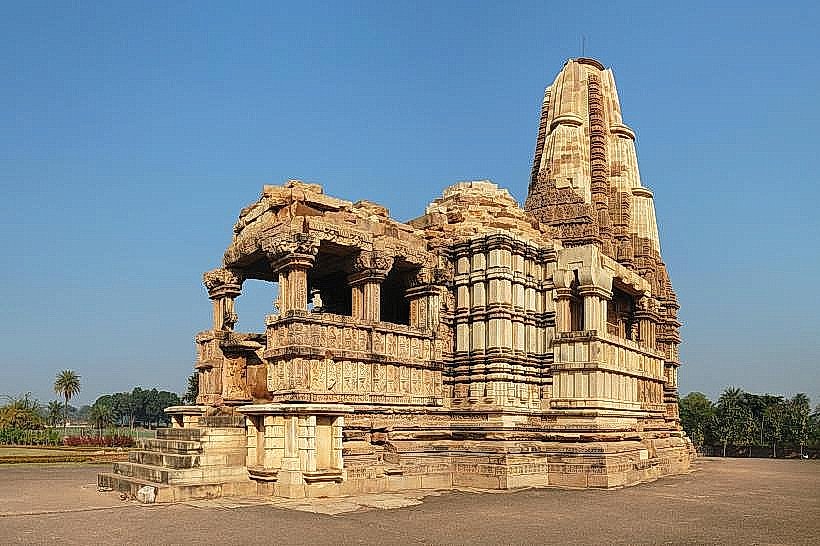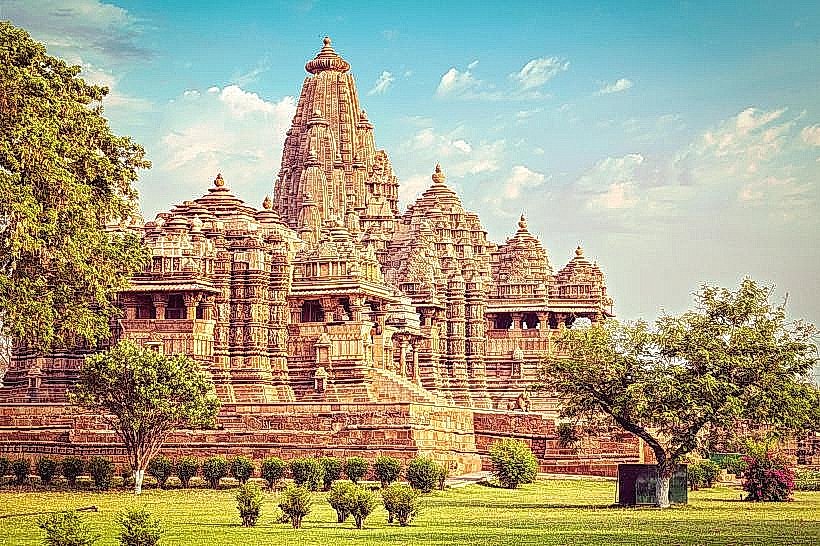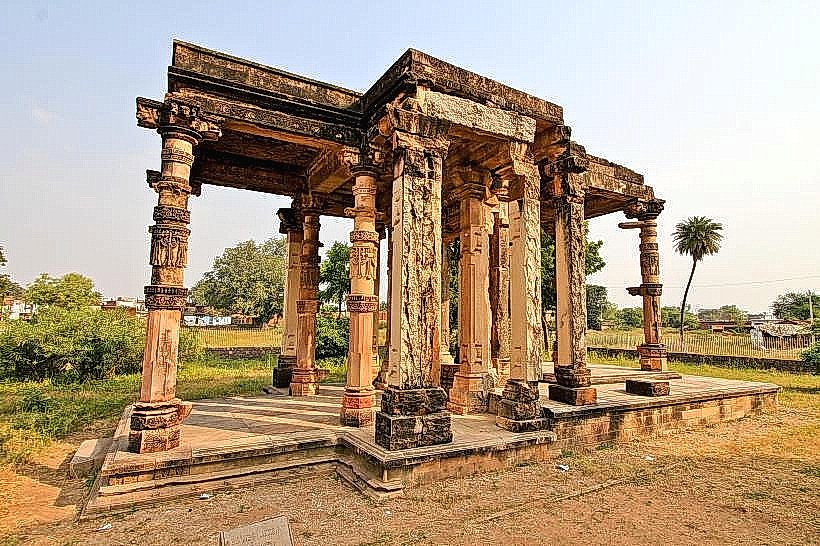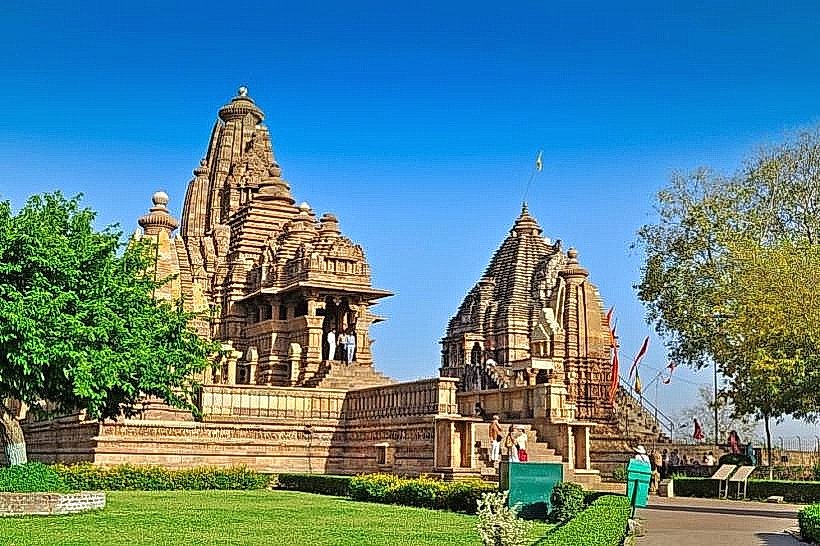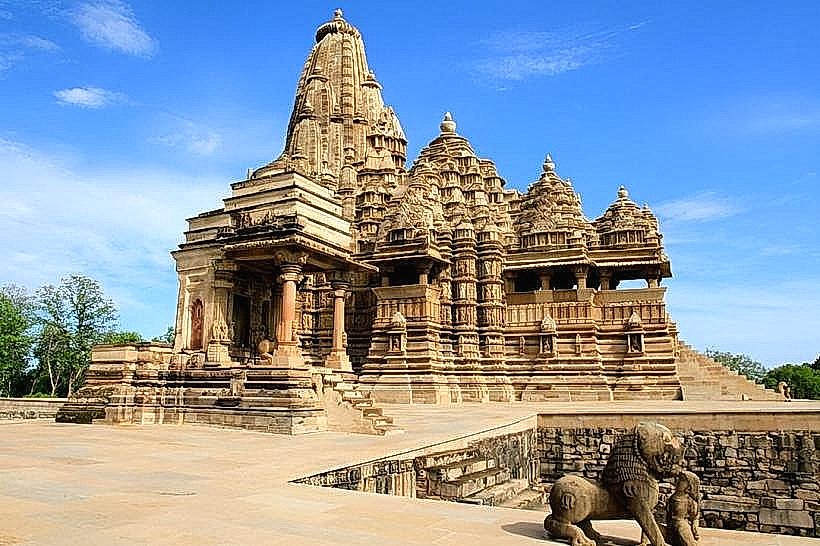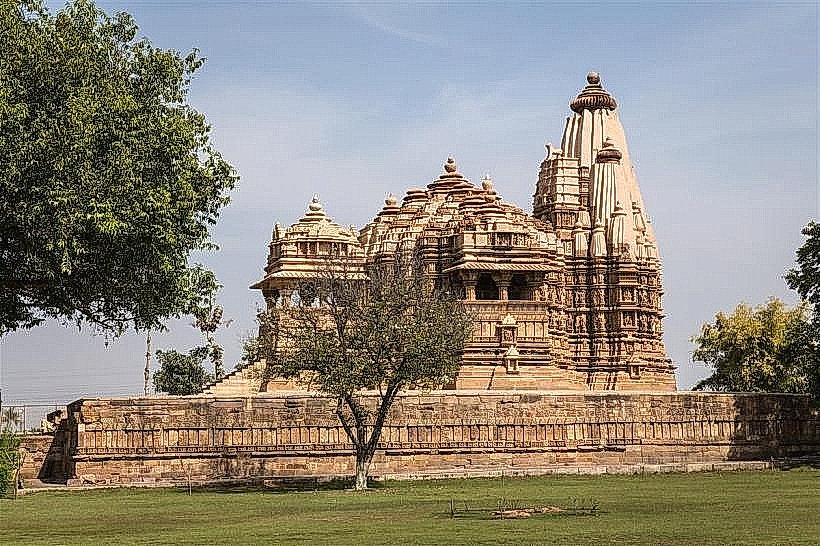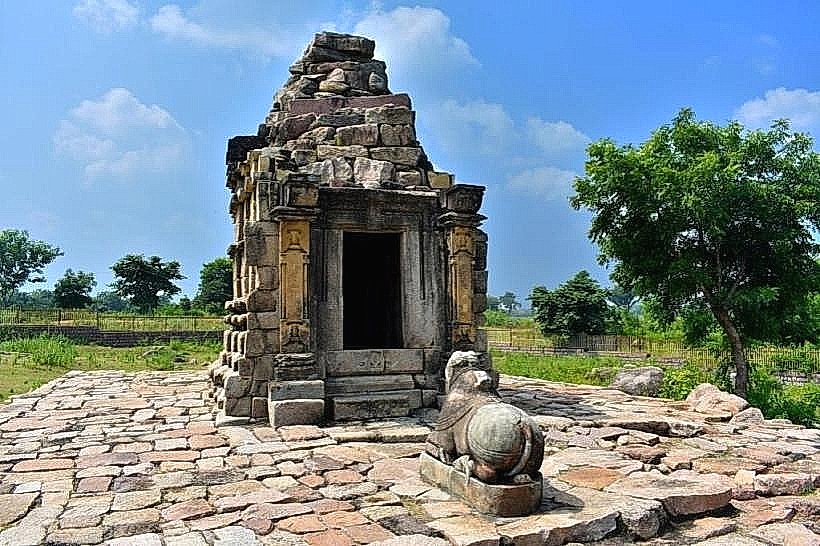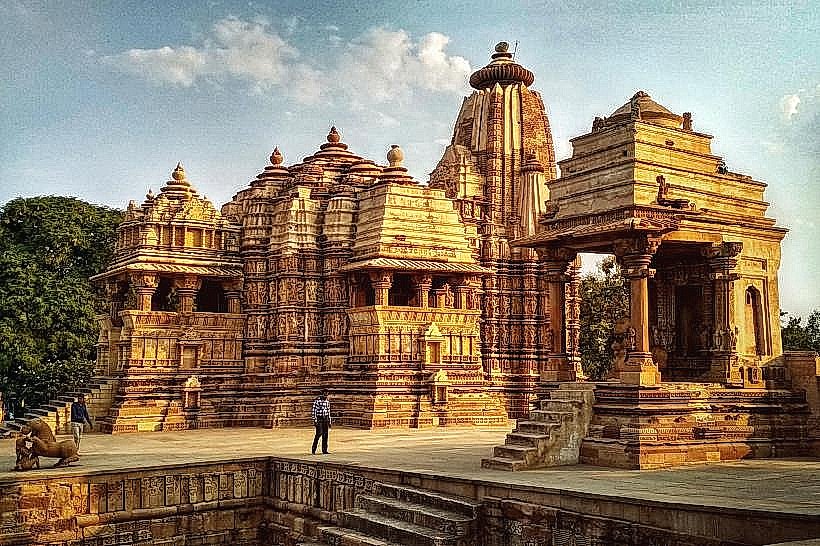Information
Landmark: Javari TempleCity: Khajuraho
Country: India
Continent: Asia
Javari Temple, Khajuraho, India, Asia
Mehtab Bagh is a Mughal-era garden complex located directly across the Yamuna River from the Taj Mahal in Agra, India.
Visual Characteristics
The garden is a large, rectangular charbagh, a four-part garden layout divided by walkways and water channels. It features red sandstone paving, brick walls, and a central octagonal pool. The garden is planted with a variety of trees and flowering plants, designed to provide a symmetrical view of the Taj Mahal.
Location & Access Logistics
Mehtab Bagh is situated on the northern bank of the Yamuna River, approximately 1.5 kilometers north of the Taj Mahal. Access is via Mehtab Bagh Road. Parking is available on-site. The nearest bus stop is located about 500 meters from the entrance. Auto-rickshaws and taxis are readily available in Agra and can drop visitors directly at the garden.
Historical & Ecological Origin
Construction of Mehtab Bagh began in the early 17th century, commissioned by Emperor Babur. It was designed as a pleasure garden and a counterpoint to the Taj Mahal, intended to offer unobstructed views of the mausoleum. The garden's layout follows traditional Mughal garden principles, emphasizing symmetry and water features.
Key Highlights & Activities
Visitors can walk through the garden's pathways, observe the symmetrical layout, and view the Taj Mahal from across the river. The central pool reflects the sky and surrounding architecture. Photography of the Taj Mahal from this vantage point is a primary activity.
Infrastructure & Amenities
Restrooms are available within the complex. Some shaded areas are provided by trees and pavilions. Cell phone signal (4G/5G) is generally good. Food vendors are not typically located within the garden itself, but are present outside the entrance.
Best Time to Visit
The best time of day for photography is during sunrise or sunset, when the light casts a warm glow on the Taj Mahal. The months of October through March offer pleasant weather, with cooler temperatures. High tide on the Yamuna River can enhance the reflections in the garden's water features.
Facts & Legends
A local legend suggests that Emperor Shah Jahan intended to build a black marble mausoleum for himself directly opposite the Taj Mahal in Mehtab Bagh, which would have been connected by a bridge. Archaeological excavations have revealed foundations that fuel this theory, though it remains unconfirmed.
Nearby Landmarks
- Taj Mahal (0.5km South)
- Agra Fort (2.5km Southwest)
- Itmad-ud-Daulah's Tomb (1.8km Southeast)
- Sikandra (8km Northwest)

